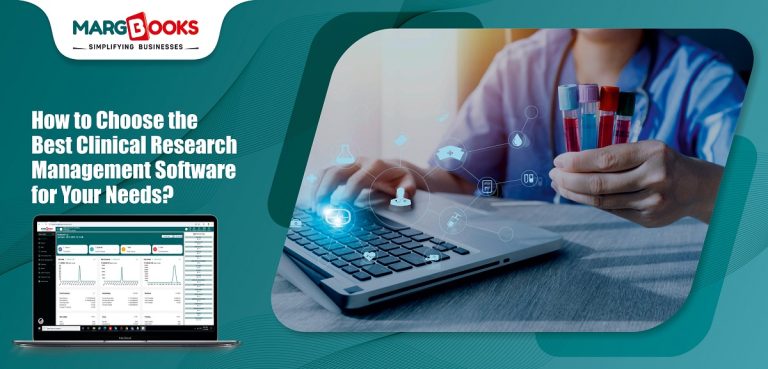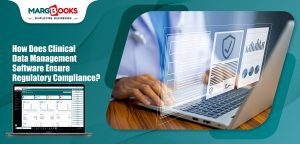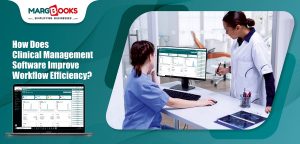In today’s fast-paced healthcare and pharmaceutical industries, the efficiency of clinical trials and research studies can make or break a business. As the demand for more robust, efficient, and streamlined clinical research increases, the importance of choosing the right Clinical Research Management Software (CRMS) becomes even more crucial. Whether you are a pharmaceutical company, research institute, or contract research organisation (CRO), selecting the right software can help optimize processes, reduce human errors, and accelerate the time-to-market for your product.
But with a myriad of options available, how do you choose the best Clinical Research Management Software for your needs? Let’s break down the essential aspects to consider before making this important decision.
What Is Clinical Research Management Software (CRMS)?
Clinical Research Management Software (CRMS) is a tool that helps research teams manage, streamline, and automate the various aspects of clinical trials. This software typically provides a wide range of functionalities, including trial management, data collection, regulatory compliance tracking, and participant management, to name a few.
In addition to traditional CRMS capabilities, many software solutions now come integrated with other tools such as pharma distribution software and pharma billing software. This integration ensures that your entire research process, from distribution to billing, is seamlessly managed, reducing the chances of errors and delays.
Factors to Consider When Choosing the Best Clinical Research Management Software
1. Ease of Use and Interface
One of the first things you should consider when evaluating any software, including CRMS, is how easy it is to use. Clinical research involves multiple stakeholders, and not everyone involved in the research process is tech-savvy. Therefore, a user-friendly interface that simplifies tasks will help your team to adopt the software faster and with fewer complications.
Look for software that offers intuitive navigation, clear labelling of features, and easy-to-read reports. Having a trial version or demo is also a good idea to gauge the ease of use before committing.
2. Customization and Scalability
Clinical research needs vary from one organisation to another. Some might focus on Phase I trials, while others may be involved in post-market surveillance. The software you choose should offer customisation features to accommodate your specific needs. For instance, the ability to tailor workflows, forms, and reports can significantly improve your efficiency.
Moreover, your research operations may expand as your business grows. It’s important to select a CRMS that can scale with your business needs. Scalability ensures that as your trials increase in size, complexity, or number, your software remains effective and continues to provide robust support.
3. Compliance with Regulatory Standards
Regulatory compliance is paramount in clinical research, especially in countries like India, where the Central Drugs Standard Control Organisation (CDSCO) and the Drugs Controller General of India (DCGI) impose strict rules on clinical trials. Therefore, the CRMS you choose should comply with international standards such as Good Clinical Practice (GCP), 21 CFR Part 11 (for electronic records and signatures), and other regulatory requirements.
Ensure that the software offers features that help with the management of compliance documents, audit trails, and real-time updates on regulatory changes. This will reduce the burden on your compliance teams and prevent costly penalties for non-compliance.
4. Data Security and Privacy
Given the sensitive nature of clinical trial data, ensuring data security and privacy is non-negotiable. The CRMS must provide robust security measures, including data encryption, two-factor authentication, and regular backups. These features are crucial to protecting patient data, maintaining confidentiality, and ensuring that your research data is not compromised.
Additionally, compliance with the General Data Protection Regulation (GDPR) and other local data protection laws is vital if your research involves international stakeholders.
5. Integration with Other Systems
Today’s clinical research environments demand seamless integration with other systems to streamline workflows. If your organisation uses pharma distribution software or pharma billing software, it’s crucial that your CRMS can integrate with these systems.
Integration ensures smooth communication between departments, eliminates redundant data entry, and provides a single platform for managing all your processes. For example, integrating CRMS with pharma distribution software can allow you to track the movement of trial supplies more effectively. Similarly, integrating with pharma billing software can help automate the billing process, saving you time and reducing the risk of errors.
6. Cost-Effectiveness
While it might be tempting to invest in the most expensive solution, it’s crucial to consider the total cost of ownership. This includes the upfront cost, as well as ongoing maintenance, support, and potential training costs.
Evaluate software solutions that offer a balance between affordability and functionality. Many vendors also offer flexible payment models such as subscription-based pricing, which can be more budget-friendly for smaller organisations.
7. Customer Support and Training
Having access to responsive customer support is essential when using complex software like CRMS. You should evaluate the support options provided by the vendor, such as 24/7 help desks, online chat, or dedicated account managers.
Additionally, look for software that offers comprehensive training resources, including tutorials, webinars, and user guides. Well-trained users can maximize the software’s capabilities and reduce dependency on external IT teams.
8. User Reviews and Testimonials
One of the best ways to understand the true performance of a clinical research management system is to hear from those who have used it. Take the time to read user reviews and testimonials on various platforms or ask the vendor for case studies from businesses similar to yours.
Pay attention to feedback regarding software reliability, ease of use, and how well it has supported the user’s research needs.
Why Margbooks is a Great Option for Clinical Research Management
Margbooks offers an excellent suite of solutions for the clinical research industry, including robust pharma distribution software and pharma billing software. Margbooks integrates seamlessly with your existing CRMS to streamline operations and provide a single source of truth for your data. The system is designed to meet the unique demands of pharmaceutical and clinical research businesses, offering everything from inventory management to invoicing.
Additionally, Margbooks is known for its user-friendly interface, customizable features, and exceptional customer support, making it a great choice for organisations looking to optimise their research processes.
Conclusion
Selecting the best Clinical Research Management Software requires careful evaluation of your organisation’s needs, budget, and long-term goals. By considering factors such as ease of use, scalability, compliance, data security, and integration with other tools like pharma distribution software and pharma billing software, you can make an informed decision that will help streamline your clinical trials, enhance collaboration, and accelerate time-to-market.
If you’re looking for a comprehensive and reliable software solution, consider integrating Margbooks into your operations. With its powerful features and seamless integration capabilities, Margbooks can help transform your research processes and ensure that your clinical trials are managed efficiently from start to finish.




